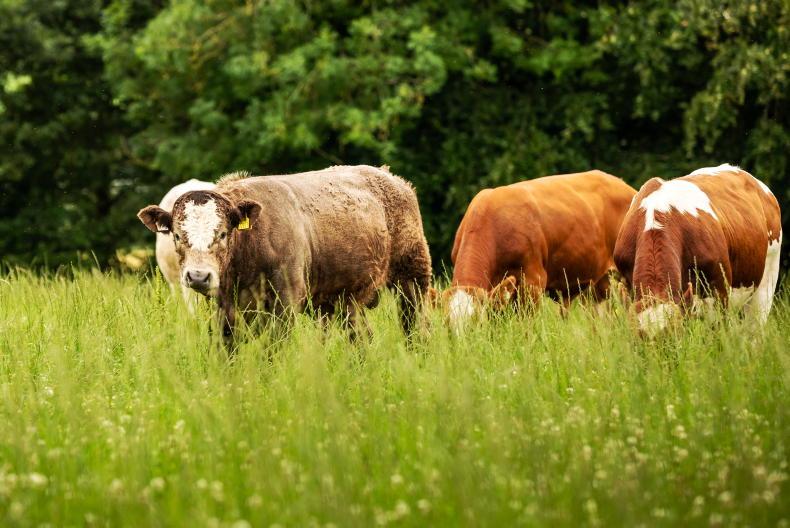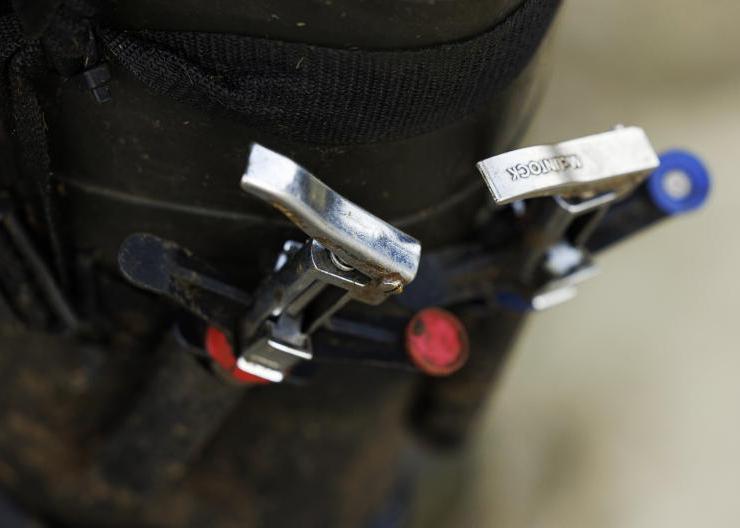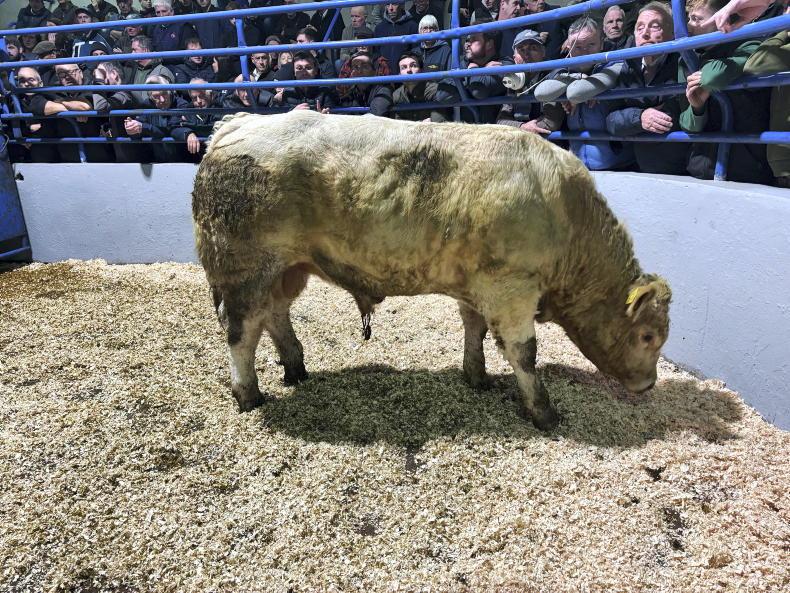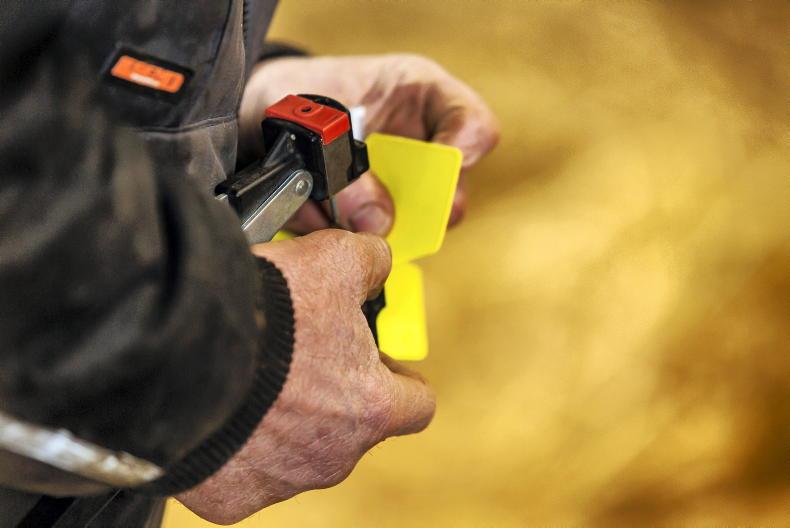Speaking at the National Ploughing Championships, Minister for Agriculture Charlie McConalogue told the Irish Farmers Journal that overall funding for Budget 2024 is likely to be increased by 6%, but that there is intense pressure for funding from all sectors.
The minister said that his Department is still rolling out and increasing the capacity of many new CAP schemes, and that this was a big priority in Budget 2024, along with looking at other existing schemes and the “many asks” for funding.
He added that he has “a lot of priorities” for available funding, and that no measures have been finalised.
In this article, we take a look at some of the big ticket items in the mix for funding.
Agri-Climate Rural
Environment Scheme
Background: The Agri-Climate Rural Environment Scheme (ACRES) dominated many scheme-related discussions over the last year. The initial budget allocated in 2023 was €200m to cover 30,000 applicants.
The decision to increase funding to allow all 46,000 eligible applicants in to the scheme will help support farm income at a time of huge pressure on input costs. It must also be acknowledged that the decision put great strain on the system.
The consequences of this are still being felt, with Minister McConalogue stating on a number of occasions that the decision to grant all farmers entry curtailed other initiatives, such as increased funding for the sheep sector.
Verdict: The Irish Government has got a lot of mileage from ACRES, with the allocation of carbon tax funds underpinning an increase in national funding in the CAP Strategic Plan from 47% to 60%.
Minister McConalogue has stated that he is keen to look for additional funds and it is almost a certainty that some will be provided; the question is how much.
For example, if an extra 10,000 places are made available, it could cost upwards of €60m extra, but there is still a lot of goodwill to be gained from making this happen.
Fodder Support Scheme – €30m in 2023 budget
Background: The scheme, introduced in 2022, supported 71,000 farmers with an average payment of €735, accumulating to a total allocation of €56m.
The scheme was rolled over to 2023, with €30m in funds allocated in Budget 2023 to provide an advance payment of 57%. In the region of €25m will be required in Budget 2024 to finalise payments in 2023.
Verdict: The scheme has been vital in helping farmers address rising input costs. Its future is uncertain, however, given that almost half the budget for 2023 has been forward spent.
With input costs remaining stubbornly high, farmers will be hopeful that the metrics used in 2022 and 2023 in establishing the scheme will be used again for Budget 2024.
Organic Farming Scheme – €37m
Background: The Organic Farming Scheme was allocated €37m in 2023 – a sharp jump from €21m in 2022. Increased payment rates, more favourable conditions and rising input costs have encouraged more farmers to join, with 4,000 farmers now participating and more expected to join.
Verdict: A figure of 2,000 more farmers being accepted in to organics in 2023 has been widely discussed at organic events. For this to happen, the funds allocated will need to jump again by a similar or higher figure for 2024.
Organics has received massive backing to date and all forecasts point to this continuing.
National Liming Programme – €8m in Budget 2023 plus €8m more
Background: The National Liming Programme attracted so much interest that the level of funding required for all applications to be approved was nine times the €8m funding allocation.
A doubling in funding to €16m was a welcome feature, but the fact a decision was not announced until 13 August left a tight timeline to get works completed.
Verdict: Reports indicate that there is still a high quantity of lime to be applied, and with ground conditions deteriorating rapidly over the last week, this could remain the case.
A happy medium, given the challenges the scheme created in 2023, may be to extend the application deadline and allow remaining lime to be applied in 2024.
National Beef
Welfare Scheme
– €23m
Background: The National Beef Welfare Scheme, funded through the Brexit Adjustment Reserve, was initially marketed as a scheme that would deliver funding of €90 per cow. With a limited budget, the scheme will deliver €50 for the first 20 cows and €42 for 40 cows – that is, provided the often contentious IBR measure is completed.
Verdict: As recent as last week’s National Ploughing Championships, Minister McConalogue told farmers at the Irish Farmers Journal stand that he has delivered on his commitment to provide funding of €200/cow for suckler cows, so one would expect funds to be found to continue such a scheme. Additional funds for the Suckler Carbon Efficiency Programme are needed.
National Dairy Beef Welfare Scheme – €5m
Background: The €5m scheme, funded in 2023 with the Brexit Adjustment Reserve, recorded major interest in 2023, with applications more than doubling to 13,339.
The increase in the payment rate to 50 calves at €20 per head was a big driver.
Verdict: The scheme has been replaced in the CAP Strategic Plan by one targeting improved breeding. Given the challenges facing the calf sector, it’s likely there is strong support for the continuation of such a scheme that targets the buyer of calves rather than the breeder.
Tillage Incentive Scheme – €10m
Background: The Tillage Incentive Scheme (TIS), introduced in 2022 in response to Russia’s invasion of Ukraine and the resultant turmoil to grain markets, is credited as having a large role to play in a 6% (20,000ha) increase in tillage area in 2022.
Verdict: The cut to the Nitrates Derogation has heaped more pressure on the tillage sector, with a recent Irish Farmers Journal survey showing that over 50% of tillage farmers expect to lose land in 2024 to dairy farmers.
Minister McConalogue is resolute in his aim to grow the tillage area, so it seems likely that the TIS will get a good hearing.
Soil Sampling and Farm Environmental Scheme – €13.3m
Background: The National Soil Sampling pilot was introduced in 2022. Further funding of €13.3m was provided in Budget 2023 to expand the pilot and operate environment training. The latter initiative was successfully introduced, but the soil sampling initiative never got off the ground.
Verdict: Funding should hopefully be rolled over to use when such issues are resolved, but the timeline remains uncertain.
Multi-Species Sward and Red
Clover Silage
Measure – €2.5m
Background: Huge credence is being placed on multi-species swards and red clover silage as a means to reduce chemical nitrogen fertiliser and provide an environmental benefit at farm-level.
Verdict: With such swards being continually referenced by the powers that be in a positive light, the relatively small budget allocated the scheme is likely to remain in the mix.
Anaerobic digestion pilot – €3m
Background: The focus of the funding was stated as aiming to kick-start a farm-based anaerobic digestion (AD) sector in Ireland. The funding was used in 2023 for an investment in an integrated AD and green bio-refining demonstration initiative.
Verdict: Funding of €12m has been provided to use over the next four years, so there are no question marks around the funding.
As mentioned earlier, there are many sectors looking for funding in Budget 2024.
The sheep sector continues to feel hard done by, and with worries mounting regarding trade deals between the UK and Australia, there is a growing urgency to introduce increased supports, in addition to utilising BAR funding to provide security going forward.
Tillage farmers have also had a very challenging year, and industry commentators state that without support, the area of lands devoted to tillage will shrink rapidly. Part of the problem is an insatiable demand for lands, triggered by a cut to the nitrates derogation.
Paschal Donohoe, Minister for Public Expenditure, alluded to support for farmers affected by the nitrates derogation cut last week, and it looks increasingly likely this will not be in the form of a dairy reduction scheme.
Industry commentators state that without support, the area of lands devoted to tillage will shrink rapidly
The continued issues in the Targeted Agricultural Modernisation Scheme led to all 8,500 applications in Tranche 1 being approved.
If the scheme is to operate as normal, funding may also need to be brought forward or new funding added for 2024.
The Bovine Viral Diarrhoea National Eradication Programme received an injection of €2.5m in funds in 2023. There are calls for the Department to provide funding to cover all costs in 2024, which would require upwards of €10m to be allocated.
Forestry continues to be a non-starter, with discussions for Budget 2024 centering around compensation for ash dieback.
Speaking at the National Ploughing Championships, Minister for Agriculture Charlie McConalogue told the Irish Farmers Journal that overall funding for Budget 2024 is likely to be increased by 6%, but that there is intense pressure for funding from all sectors.
The minister said that his Department is still rolling out and increasing the capacity of many new CAP schemes, and that this was a big priority in Budget 2024, along with looking at other existing schemes and the “many asks” for funding.
He added that he has “a lot of priorities” for available funding, and that no measures have been finalised.
In this article, we take a look at some of the big ticket items in the mix for funding.
Agri-Climate Rural
Environment Scheme
Background: The Agri-Climate Rural Environment Scheme (ACRES) dominated many scheme-related discussions over the last year. The initial budget allocated in 2023 was €200m to cover 30,000 applicants.
The decision to increase funding to allow all 46,000 eligible applicants in to the scheme will help support farm income at a time of huge pressure on input costs. It must also be acknowledged that the decision put great strain on the system.
The consequences of this are still being felt, with Minister McConalogue stating on a number of occasions that the decision to grant all farmers entry curtailed other initiatives, such as increased funding for the sheep sector.
Verdict: The Irish Government has got a lot of mileage from ACRES, with the allocation of carbon tax funds underpinning an increase in national funding in the CAP Strategic Plan from 47% to 60%.
Minister McConalogue has stated that he is keen to look for additional funds and it is almost a certainty that some will be provided; the question is how much.
For example, if an extra 10,000 places are made available, it could cost upwards of €60m extra, but there is still a lot of goodwill to be gained from making this happen.
Fodder Support Scheme – €30m in 2023 budget
Background: The scheme, introduced in 2022, supported 71,000 farmers with an average payment of €735, accumulating to a total allocation of €56m.
The scheme was rolled over to 2023, with €30m in funds allocated in Budget 2023 to provide an advance payment of 57%. In the region of €25m will be required in Budget 2024 to finalise payments in 2023.
Verdict: The scheme has been vital in helping farmers address rising input costs. Its future is uncertain, however, given that almost half the budget for 2023 has been forward spent.
With input costs remaining stubbornly high, farmers will be hopeful that the metrics used in 2022 and 2023 in establishing the scheme will be used again for Budget 2024.
Organic Farming Scheme – €37m
Background: The Organic Farming Scheme was allocated €37m in 2023 – a sharp jump from €21m in 2022. Increased payment rates, more favourable conditions and rising input costs have encouraged more farmers to join, with 4,000 farmers now participating and more expected to join.
Verdict: A figure of 2,000 more farmers being accepted in to organics in 2023 has been widely discussed at organic events. For this to happen, the funds allocated will need to jump again by a similar or higher figure for 2024.
Organics has received massive backing to date and all forecasts point to this continuing.
National Liming Programme – €8m in Budget 2023 plus €8m more
Background: The National Liming Programme attracted so much interest that the level of funding required for all applications to be approved was nine times the €8m funding allocation.
A doubling in funding to €16m was a welcome feature, but the fact a decision was not announced until 13 August left a tight timeline to get works completed.
Verdict: Reports indicate that there is still a high quantity of lime to be applied, and with ground conditions deteriorating rapidly over the last week, this could remain the case.
A happy medium, given the challenges the scheme created in 2023, may be to extend the application deadline and allow remaining lime to be applied in 2024.
National Beef
Welfare Scheme
– €23m
Background: The National Beef Welfare Scheme, funded through the Brexit Adjustment Reserve, was initially marketed as a scheme that would deliver funding of €90 per cow. With a limited budget, the scheme will deliver €50 for the first 20 cows and €42 for 40 cows – that is, provided the often contentious IBR measure is completed.
Verdict: As recent as last week’s National Ploughing Championships, Minister McConalogue told farmers at the Irish Farmers Journal stand that he has delivered on his commitment to provide funding of €200/cow for suckler cows, so one would expect funds to be found to continue such a scheme. Additional funds for the Suckler Carbon Efficiency Programme are needed.
National Dairy Beef Welfare Scheme – €5m
Background: The €5m scheme, funded in 2023 with the Brexit Adjustment Reserve, recorded major interest in 2023, with applications more than doubling to 13,339.
The increase in the payment rate to 50 calves at €20 per head was a big driver.
Verdict: The scheme has been replaced in the CAP Strategic Plan by one targeting improved breeding. Given the challenges facing the calf sector, it’s likely there is strong support for the continuation of such a scheme that targets the buyer of calves rather than the breeder.
Tillage Incentive Scheme – €10m
Background: The Tillage Incentive Scheme (TIS), introduced in 2022 in response to Russia’s invasion of Ukraine and the resultant turmoil to grain markets, is credited as having a large role to play in a 6% (20,000ha) increase in tillage area in 2022.
Verdict: The cut to the Nitrates Derogation has heaped more pressure on the tillage sector, with a recent Irish Farmers Journal survey showing that over 50% of tillage farmers expect to lose land in 2024 to dairy farmers.
Minister McConalogue is resolute in his aim to grow the tillage area, so it seems likely that the TIS will get a good hearing.
Soil Sampling and Farm Environmental Scheme – €13.3m
Background: The National Soil Sampling pilot was introduced in 2022. Further funding of €13.3m was provided in Budget 2023 to expand the pilot and operate environment training. The latter initiative was successfully introduced, but the soil sampling initiative never got off the ground.
Verdict: Funding should hopefully be rolled over to use when such issues are resolved, but the timeline remains uncertain.
Multi-Species Sward and Red
Clover Silage
Measure – €2.5m
Background: Huge credence is being placed on multi-species swards and red clover silage as a means to reduce chemical nitrogen fertiliser and provide an environmental benefit at farm-level.
Verdict: With such swards being continually referenced by the powers that be in a positive light, the relatively small budget allocated the scheme is likely to remain in the mix.
Anaerobic digestion pilot – €3m
Background: The focus of the funding was stated as aiming to kick-start a farm-based anaerobic digestion (AD) sector in Ireland. The funding was used in 2023 for an investment in an integrated AD and green bio-refining demonstration initiative.
Verdict: Funding of €12m has been provided to use over the next four years, so there are no question marks around the funding.
As mentioned earlier, there are many sectors looking for funding in Budget 2024.
The sheep sector continues to feel hard done by, and with worries mounting regarding trade deals between the UK and Australia, there is a growing urgency to introduce increased supports, in addition to utilising BAR funding to provide security going forward.
Tillage farmers have also had a very challenging year, and industry commentators state that without support, the area of lands devoted to tillage will shrink rapidly. Part of the problem is an insatiable demand for lands, triggered by a cut to the nitrates derogation.
Paschal Donohoe, Minister for Public Expenditure, alluded to support for farmers affected by the nitrates derogation cut last week, and it looks increasingly likely this will not be in the form of a dairy reduction scheme.
Industry commentators state that without support, the area of lands devoted to tillage will shrink rapidly
The continued issues in the Targeted Agricultural Modernisation Scheme led to all 8,500 applications in Tranche 1 being approved.
If the scheme is to operate as normal, funding may also need to be brought forward or new funding added for 2024.
The Bovine Viral Diarrhoea National Eradication Programme received an injection of €2.5m in funds in 2023. There are calls for the Department to provide funding to cover all costs in 2024, which would require upwards of €10m to be allocated.
Forestry continues to be a non-starter, with discussions for Budget 2024 centering around compensation for ash dieback.










SHARING OPTIONS